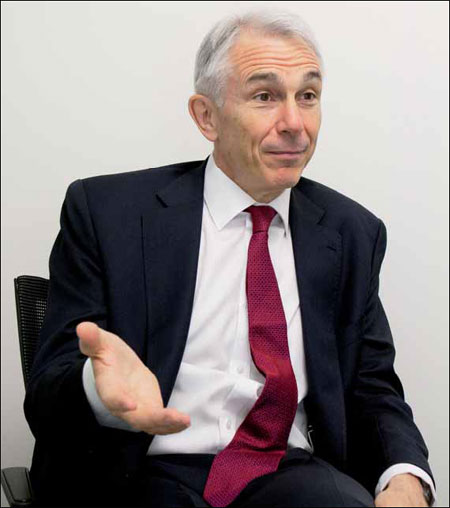China worth the wait: IATA
Updated: 2012-06-01 11:03
By Todd Balazovic (China Daily European Weekly)
|
|||||||||||
Nation's evolving market could be driving force in global aviation
Tony Tyler is not one to mince his words.
While visiting Beijing for the China Civil Aviation Development Forum, the CEO of the International Air Transport Association (IATA) was quick to get the record straight on China's opposition to the ongoing controversy surrounding the European Union's emissions trading scheme for airlines.
 |
| Darnell Gardner Jr / for China Daily |
"I can understand why the Chinese government sees the imposition of the ETS as an affront to their sovereignty. The Europeans are seeking to tax Chinese airlines flying in Chinese airspace," he said during a media roundtable at the IATA office in Beijing on May 23.
"I can understand why the government sees that as unacceptable and so they're taking what seems to me to be entirely appropriate steps to protect their own sovereignty."
EU officials want Chinese airlines to pay a tax on their carbon emissions. The EU plan to charge carriers for their pollution includes all airlines that take off or land in the 27-member bloc.
He says the IATA, a nonprofit organization representing 230 airlines from 118 countries and regions, is working to find a solution that will make everyone happy and avoid a trade war.
But rather than an opposing force, Tyler says he sees China as a source for a much needed boost to the global aviation industry that he describes as being in a "fragile state" with "razor thin profits".
Hit hard by rocketing fuel prices, the airline industry's global profits sliced in half in 2011, from $16 billion (12.8 billion euros) in 2010 to just $8 billion last year.
The predictions for 2012 look grim with projected global profits slipping to $3 billion.

With more than a quarter of the world's travelers expected to be Chinese by 2015, Tyler believes that as the nation's airline industry evolves, it could be a driving force in global aviation.
But it will take time before airlines can reap the benefits of China's mushrooming air travel market.
"I think people know it's not going to be simple and straightforward to break into the market and establish a strong position," Tyler says. "But equally, they know in the future they need to be an important player in the Chinese market. We recognize that some markets will take longer than others."
With an additional 31 million international travelers expected in China by 2015, he says it is worth the wait for international carriers expanding in the country.
And while Tyler recognizes the future promise of the Chinese market, he says there are still steps to be taken before airlines, both domestic and international, can take full advantage of the country's potential.
The biggest obstacle to overcome is the transition of Chinese airspace from military to civilian use in order to meet growing demand - a natural progression for every country, he says.
"Every country goes through a sort of process where it starts off where the airspace is all military controlled and gradually the civilian controlled airspace gets more and more prominent," he says. "China's walking down the path of freeing up air space to civilian control, but it's still less developed in that way than most other places."
He says while steps are being taken to free air space, the speed at which China's aviation industry is growing is making it difficult for authorities to keep pace with demand.
Congestion, especially in what Tyler refers to as the "golden triangle" of airports - Beijing, Shanghai and Guangzhou - is another area in which foreign airlines are facing difficulties.
Last year, Beijing was listed as the world's second busiest airport servicing more than 77 million passengers, topped only by Hartsfield-Jackson Atlanta International Airport in the United States with 92 million.
But with plans for a new "mega-hub" in the 12th Five-Year Plan (2011-15) - China's congestion issues should soon become a matter of the past.
Though China's air industry has experienced growing pains, Tyler is quick to point out areas where it is excelling, particularly in finance.
While in other areas of the world, it can take weeks or months before money from tickets purchased through travel agents reaches the airlines, in China the process takes just three days.
"The financial systems here are almost setting the standard. They're extremely efficient," he says.
Safety is another area where China has seen vast improvements.
"Standards here in terms of safety are now up there with the best of the world - and you wouldn't have been able to say that 20 years ago," Tyler says. "Like everything in China - when they do things properly, they do them very well indeed."
toddbalazovic@chinadaily.com.cn
Today's Top News
President Xi confident in recovery from quake
H7N9 update: 104 cases, 21 deaths
Telecom workers restore links
Coal mine blast kills 18 in Jilin
Intl scholarship puts China on the map
More bird flu patients discharged
Gold loses sheen, but still a safe bet
US 'turns blind eye to human rights'
Hot Topics
Lunar probe , China growth forecasts, Emission rules get tougher, China seen through 'colored lens', International board,
Editor's Picks

|

|

|

|

|

|





